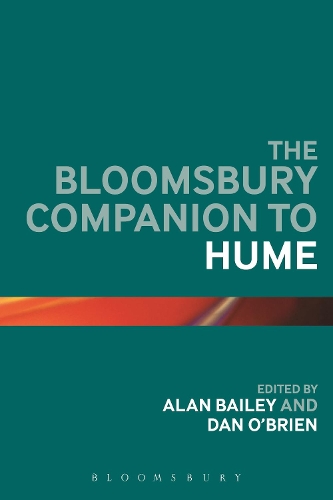
The Bloomsbury Companion to Hume
(Paperback)
Publishing Details
The Bloomsbury Companion to Hume
By (Author) Alan Bailey
Edited by Daniel Jayes O'Brien
Bloomsbury Publishing PLC
Bloomsbury Academic
30th July 2015
United Kingdom
Classifications
Tertiary Education
Non Fiction
Social and political philosophy
Cognition and cognitive psychology
Psychology: the self, ego, identity, personality
192
Physical Properties
Paperback
472
Width 150mm, Height 232mm, Spine 28mm
700g
Description
David Hume (1711-1776), philosopher, historian, and essayist, is widely considered to be Britain's greatest philosopher. One of the leading intellectual figures of the Scottish Enlightenment, his major works and central ideas, especially his radical empiricism and his critique of the pretensions of philosophical rationalism, remain hugely influential on contemporary philosophers. This comprehensive and accessible guide to Hume's life and work includes 21 specially commissioned essays, written by a team of leading experts, covering every aspect of Hume's thought. The Companion presents details of Hume's life, historical and philosophical context, providing students with a comprehensive overview of all the key themes and topics apparent in his work, including his accounts of causal reasoning, scepticism, the soul and the self, action, reason, free will, miracles, natural religion, politics, human nature, women, economics and history, and an account of his reception and enduring influence. This textbook is indispensable to anyone studying in the areas of Hume Studies, British, and eighteenth-century philosophy.
Author Bio
Alan Bailey is a Visiting Lecturer in Philosophy at the University of Wolverhampton and has taught in the Philosophy departments at Keele University and the University of Birmingham, UK. Dan O'Brien is a Senior Lecturer in Philosophy at Oxford Brookes University, Honorary Research Fellow at the University of Birmingham and Associate Lecturer at the Open University, UK.
